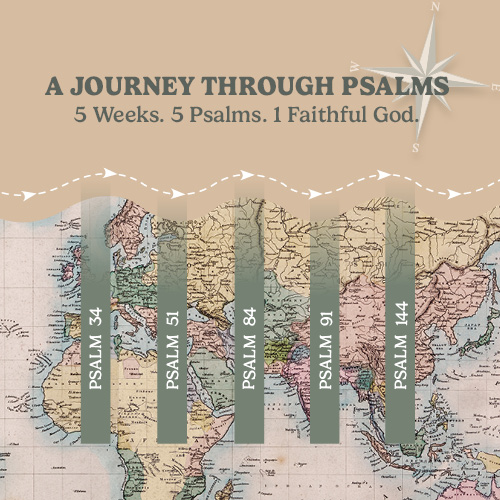Lent - Day 6
Posted on: March 6, 2020
by: Gerrit Dawson, Senior Pastor
by: Gerrit Dawson, Senior Pastor
Day 6 Friday
THE FACE OF THE OPPOSITION
That which we have seen and heard we proclaim also to you, so that you too may have fellowship with us; and indeed our fellowship is with the Father and with his Son Jesus Christ (1 John 1: 3).
FOLLOWING THE SCRIPT
This was why the Jews were seeking all the more to kill him, because not only was he breaking the Sabbath, but he was even calling God his own Father, making himself equal with God (John 5: 18).
Luke 18: 9-14
He also told this parable to some who trusted in themselves that they were righteous, and treated others with contempt. “Two men went up into the temple to pray, one a Pharisee and the other a tax collector. The Pharisee, standing by himself, prayed thus, ‘God, I thank you that I am not like other men, extortioners, unjust, adulterers, or even like this tax collector. I fast twice a week; I give tithes of all that I get.’ But the tax collector, standing far off, would not even lift up his eyes to heaven, but beat his breast saying, ‘God, be merciful to me, a sinner.’ I tell you this man went down to his house justified, rather than the other. For everyone who exalts himself will be humbled, but the one who humbles himself will be exalted.”
CAST NOTES
We have already seen that the opposition to Jesus resides in every human heart, in the collective spirit of the world and in the malevolence of the spiritual Enemy of God and his creation. That shared, unseen resistance takes particular expression in the human enemies that Jesus faced during Passion Week.
When we read that “the Jews” sought to kill Jesus, we do not read with anti-Semitic eyes. That would be to miss the point. When we read “the Jews” in the gospel, we know he means, “the people who already knew better.” We think then today of church people. Of those who know the Scriptures, who go to worship and keep the feasts of the church. They could not grasp the surprising twist that God would take up frail human flesh. It seemed like blasphemy. I’m quite sure I would have missed it too!
In today’s parable, we also meet the most zealous of the LORD’s people. The Pharisees had devoted themselves to strict observance of holiness. Their mission was to preserve the distinctiveness of God’s people during Roman occupation and the great pluralizing force of Greek culture. The Pharisees had a good impulse toward holiness. Good motivations, however, often tumbled into crushing legalism. The difficulty arose when this rigorous observance became legalistic, more concerned with rules than heart, with judgment than mercy.
Along with the Pharisees, our drama includes other religious elites who became part of the opposition to Jesus. The scribes and lawyers were scholars of Scriptural law. They learned not only what the Bible said in detail, but the traditional commentaries and interpretations of Scripture. These were trained theologians, always engaged in debates.
The ruling council was called the Sanhedrin. Comprised of only 70 members (plus whoever presided as chief priest for the year), many of them priests and/or Pharisees, the council was the elite of the elite. There was also a group called the Saducees. They represented “old money” and aristocratic social standing. The Saducees rejected any belief in a future resurrection. Generally, they liked the way things were and would resist any upstart like Jesus.
Which of these groups do you most see yourself in? Are you more prone to legalism or worldly compromise? Do you ever get afflicted with spiritual indifference because you have been a believer so long? Has leadership in the church ever burned you out on faith?
How could identifying more with the tax collector in this parable restore you to a more vibrant relationship with Christ and a deeper love of others?
PRAYING IN CHARACTER
Again Lord Jesus, I read the gospels and am led to confess. Sometimes, I have been the face of the opposition toward you. This day, I want to own your descriptions of the Pharisees as often true of me:
O Lord Jesus, with the tax collector, I bow my head, beat my breast and cry, “God, be merciful to me, a sinner!”
I preach but do not practice. I give other people tasks and burdens but do not myself life a finger (Matthew 23: 2-4).
By my indifference, blindness, snobbiness, overlooking, scorn or judgment, I have “shut the kingdom of heaven in people’s faces” (Matthew 23: 13).
I have been picky about particular points of behavior while neglecting “justice, mercy and faithfulness” (Matthew 23: 23).
I have cleaned the outside of my life while inside I have remained “full of greed and self-indulgence” (Matthew 23: 25).
You could well say of me Jesus, when I am all dressed up with my resume in hand and smooth speech on my lips that within “I am full of dead people’s bones and all uncleanness” (Matthew 23: 27).
These are written so that you may believe that Jesus is the Christ, the Son of God, and that by believing you may have life in his name (John 20: 31).
Posted in:




 Close
Close












